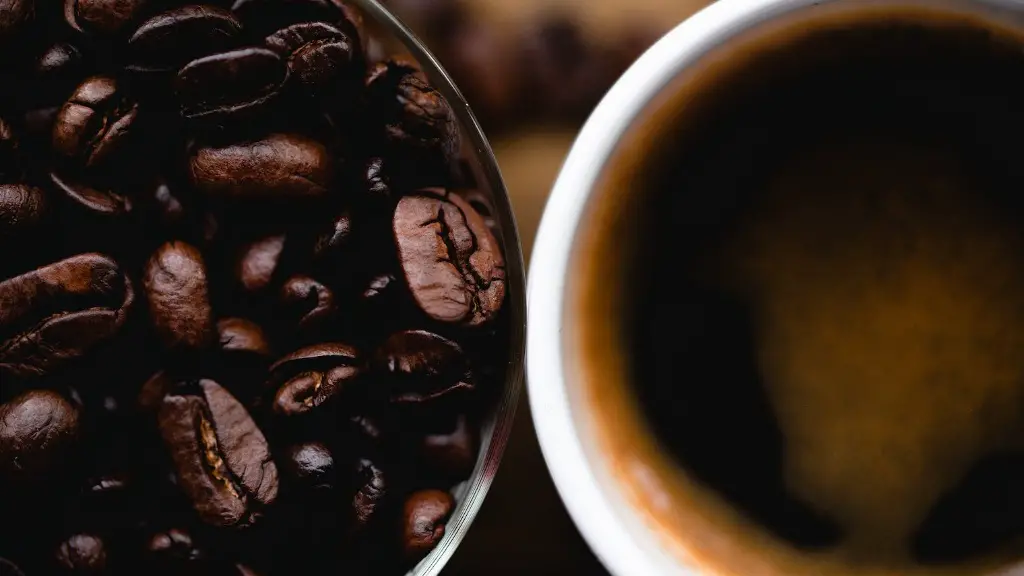Coffee is a popular beverage enjoyed by many people around the world. It is often touted for its beneficial effects on the brain and body, from providing an energy boost and reducing fatigue, to antioxidants that can help protect cells from damage. But one of the questions often asked is, can drinking coffee make your blood pressure go up?
The answer, as with many things, is more nuanced than a straightforward yes or no. To really understand the effects of caffeine on blood pressure, it is important to look at the research. Studies have shown mixed results when it comes to the effects of coffee on blood pressure. Some studies suggest that caffeine can raise blood pressure, while others show no effect.
In general, it appears that caffeine can cause an acute elevation in blood pressure, but it may not necessarily result in chronic hypertension. One study of healthy people showed that drinking two to three cups of coffee per day increased average systolic blood pressure by 4 points and average diastolic blood pressure by 3 points.
However, it should be noted that the effects of caffeine on blood pressure may vary depending on the individual. Factors such as body weight, age, stress levels, and sensitivity to caffeine can all play a role in determining how coffee will affect someone’s blood pressure. People who are particularly sensitive to caffeine may experience larger increases in blood pressure or even hypertension when consuming caffeine.
Experts recommend that people with hypertension or prehypertension consult their doctor before drinking coffee to determine how it will affect their blood pressure. It is possible that limiting the amount of coffee one drinks or switching to decaffeinated coffee may help keep blood pressure in check.
In addition, there are lifestyle changes that can help reduce high blood pressure, such as eating a healthy diet, exercising regularly, limiting alcohol consumption, and quitting smoking. These lifestyle changes can help reduce the risk of developing hypertension, as well as help keep existing hypertension under control.
Drinking Coffee and Cardiovascular Disease
Researchers have also looked into the effects of drinking coffee and the risk of cardiovascular disease. Some studies have suggested that drinking coffee may be associated with a reduced risk of certain types of cardiovascular disease, such as stroke, while other studies have shown no effect. More research is needed to understand the relationship between coffee and cardiovascular disease.
Overall, it appears that drinking coffee in moderation is unlikely to raise blood pressure significantly, but it is important to know your own body and consult your doctor if you are concerned about its effects.
Is Decaf Coffee a Good Alternative?
Decaffeinated coffee has become popular in recent years as people look for an alternative to regular coffee that is still able to provide some of the same benefits. It is important to note that decaf coffee still contains some caffeine and so may still have an effect on blood pressure.
However, research indicates that the amount of caffeine in decaf coffee is very low, and that it does not seem to have a significant effect on blood pressure. Consequently, decaffeinated coffee may be an option for those looking for an alternative to regular coffee.
Coffee and Caffeine Intake
It is important to note that coffee is not the only source of caffeine. Sodas, energy drinks, and even certain types of tea all contain varying amounts of caffeine. While the effects may be slight among those who do not have a high sensitivity to caffeine, it is still important to be mindful of total caffeine intake.
It is recommended to limit caffeine intake to 400 mg per day. This is equivalent to about 4 cups of regular coffee or 8 cups of tea. It is also important to be mindful of consuming caffeine too late in the day, as this can interfere with sleep, which can in turn have an effect on blood pressure.
Herbal Alternatives To Coffee
For those looking for an alternative to coffee that does not contain any caffeine, there are a variety of herbal drinks and teas that may be beneficial. These include ginger tea, chamomile tea, hibiscus tea, and rooibos tea. Herbal teas can help provide energy and may also have other health benefits.
In addition, there are a variety of supplements that claim to provide energy boosts without the use of caffeine. These include certain vitamins, minerals, and herbs. However, it is important to research any supplements before taking them to make sure they are safe and effective.
How Drinking Coffee Affects Performance
Many people reach for coffee to give them a boost in the morning, and the caffeine in coffee can often provide the energy boost that is needed. However, it is important to note that caffeine can also have a negative effect on performance if it is consumed in excess, leading to increased anxiety and irritability.
It is important to be mindful of how much coffee one consumes and to pay attention to how it is making them feel. While coffee can be helpful in providing energy and focus in the short term, it is important not to rely on it too heavily in the long-term.
Alternatives To Coffee For a More Balanced Diet
In addition to herbal and caffeine-free alternatives, there are other strategies that can be used to maintain energy levels and focus throughout the day. Eating a balanced diet with plenty of fruits, vegetables, and whole grains can help provide slow-release energy, keeping energy levels steady throughout the day.
Getting regular exercise, getting adequate sleep at night, and reducing stress can also help keep energy levels up. In addition, herbal or caffeine-free supplements may be beneficial for those looking for a natural energy boost.
Coffee and Mental Health
Coffee intake can also have an effect on mental health. Studies have shown that drinking too much coffee can lead to increased levels of anxiety and depression, as well as impairments in cognitive functions such as memory and attention.
It is important to be mindful of how much coffee one drinks and take note of any changes in mental health. Consuming coffee in moderation and staying mindful of any changes in mood or mental health can help maintain a healthy relationship with coffee in the long-term.
Conclusion
Overall, it is important to consider all the available information when it comes to coffee and its effects on health, including blood pressure. While drinking coffee in moderation is unlikely to raise blood pressure significantly, it is still important to consult a doctor if you are concerned about its effects. Additionally, it is important to consider lifestyle changes, alternative beverages, and supplements to maintain a balanced diet and adequate energy levels.





